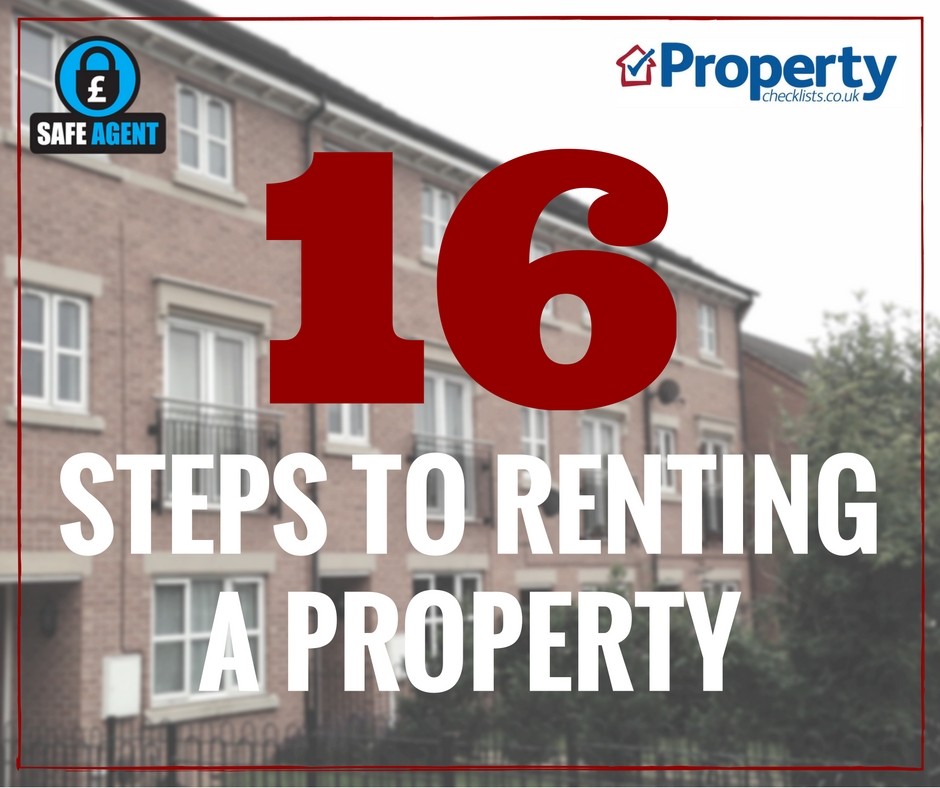
I’ve always had huge respect for the Financial Times but a recent article really surprised me, partly because the FT actually thought it worth publishing, despite its obvious flaws.
However, when I realised it was written by Neil O’Brien, Conservative MP for Harborough and a former adviser to Theresa May and George Osborne, I began to appreciate why it made no sense.
In a nutshell, his view was that if you get rid of buy to let, home ownership will magically increase for young voters.
This confirmed that my theory that our biggest housing problem is that some MPs haven’t a clue about the reality of the property market. This, I believe, has been a cause of the crisis for the last 30 years and will continue to be so for the next 5-10 years.
Below, I’ve summarised his views on the property market, as expressed in the FT article, and added my own thoughts. I welcome any feedback from readers, too.
“The children of baby boomers are missing out on the opportunities their parents had…”
He claims this is because they are less likely to own a home.
He doesn’t mention the war the baby boomers went through as children or that most rented, not owned, until 1975. He makes no mention of hyperinflation, blackouts and three-day working weeks, a huge loss of life due to illnesses such as cancer or indeed 15% mortgage interest rates.
He also omits to mention the 70,000+ repossessions during the 90s recession, twice as high as they were in any year since the credit crunch.
“Many young people feel they are on a cruel treadmill, spending fortunes on rent…"
I guess he hasn’t checked the actual figures his own government’s ONS produces. In the private rented sector, rents tend to rise in line with wages. In the social sector they are controlled, which typically means an annual rise of inflation plus 0.5%-1%, as agreed with the government. So it is social renters who are suffering most here, as wages aren’t currently keeping up with inflation.
Our data shows that, on an annual cost basis, renting a home is typically cheaper than buying one with a 95% first-time buyer mortgage – and it’s only price rises which make it more cost-effective long term.
Mr O’Brien clearly doesn’t know that a lender’s interest tends to represent a similar amount of ‘dead money’ as renting does.
For example, to buy a two-bed terrace in Oxford costs around £400k. That’s £50k for a deposit and buying costs, a repayment mortgage at £1,700 a month and maintenance to pay for. The money given in this amount to lenders as ‘dead interest’ isn’t far off the £1,250 monthly rent, plus the several grand in fees, to rent the same property. And, of course, renters have no maintenance costs.
“…enriching their landlords, but meaning they can never save up a deposit for a home of their own.”
I accept that young people do struggle to save for a deposit. When I was in that position, I spent as little as possible, which was easier back then – mainly because there no mobile phones and fewer temptations in the form of cheap trips abroad and daily takeaway coffees.
But last year, research from Sarah Beeny’s estate agent Tepilo revealed that young people saving for a home are still managing to set aside more than £200 a month for leisure activities.
Despite this, deposits have risen to epic levels of 15-25%. Why? Because some of our third generation home owners (those ‘lucky’ baby boomers) are funding all or part of the deposit – which my parents and many others couldn’t afford to do back in the 1990s.
And, as evidence that people can still buy, the number of first-time buyers is similar today to the number in 2005.
What Mr O’Brien completely ignores in the ownership argument are the government policies which make it better for people to rent than buy.
For example, there are more youngsters having the opportunity to go to university (albeit with large loans) which delays home ownership.
And there are many more people and families on lower real incomes than they were 10 years ago, especially public sector workers affected by the Conservative’s pay cap. At the same time, property prices in London have gone up on average by 40-80% since the height of the market prior to the credit crunch in 2007/8.
Why aren’t certain MPs making the connection between a public sector wage cap and lower home ownership? I expect this is a much bigger cause of a fall in home ownership than BTL investors. In fact, if it wasn’t for BTL investors – who, on average, own just one extra property – these people wouldn’t have anywhere to live at all.
To find out who our landlords really, read the TDS report.
“For young families, being locked out of home ownership means a lot...”
Yes families are locked out of ownership in expensive areas like London, Harrogate and Edinburgh but much of the growth of families in the private rented sector is because either because their wages haven’t kept up with house price growth due to austerity policies, or because they are on benefits and there is a shortage of social housing.
According to Shelter, there are more than 1 million households – many of them families – on waiting lists for social housing. Without access to social housing, they must rent in the private sector. These families aren’t being ‘locked out of home ownership’ by private landlords, they were never in the market for home ownership.
Indeed, private landlords are doing them a service by providing them with much-needed accommodation because, since the late 1980s, the Conservatives – and other parties – have done almost everything they can NOT to fund and build social homes. Their plan was to house people in temporary private rented accommodation instead.
Now that’s become financially unviable in some areas for the private sector, homelessness is increasing rapidly, not due to landlords increasing rents, but due to these three key Conservative polices:
Loss of housing benefit for under 21s
Benefit caps – which mean, for the sake of £50-100 a month, tenants on housing benefits are being evicted for rent arrears and put in B&B accommodation, which costs a lot more
Introduction of Universal Credit causing huge rent arrears for social and private landlords and ultimately limiting the number of homes vulnerable people can rent. Many landlords won’t rent to those on benefits if they can get more by renting privately and, indeed, many of them have restrictions put on them by their lender or insurance companies, however misguided.
Mr O’Brien mentions none of these realities at all. Nor does he acknowledge the contribution made by BTL landlords in putting a roof over people’s heads – directly because of the demand created by the Conservatives and other governments.
“…from not being able to decorate to delaying having children. It means still living with parents in your late 30s, or sharing a flat like a student in your 40s.”
“Since 2005 the private sector built about 165,000 new homes a year. But the number of owner-occupiers actually declined, because 195,000 more homes have been bought up to let out each year.”
Is buy to let is to blame for this? In the last 10 years we’ve had once of the worst recessions in living memory. People, especially youngsters, seriously cut back on their spending.
But Mr O’Brien makes no mention of the credit crunch being a major cause for the fall in home ownership over the last 10 years. Yet the figures are obvious: 50% of first-time buyers dropped out of the market until at least 2013, with FTB numbers only just this year recovering to 2005 levels, 10 years after the credit crunch hit.
“Recent decades have seen the invention of the buy-to-let mortgage, and the subsidies for home ownership like mortgage interest relief (MIRAS), have been scrapped. But the tax treatment of letting has remained highly favourable compared with other investments. That, plus relentless house price inflation, has made investing in buy-to-let a no-brainer.”
Mr O’Brien mentions “relentless house price inflation” – and yet almost half the country has not yet recovered property prices to 2007/8 levels. Does he not realise that in the North East prices are around 9% lower than they were 10 years ago? Clearly not, despite the fact these figures are produced by one of his own government departments – the Land Registry.
Also, BTL is a ‘no brainer’, is it? Has he not seen that many an overpriced city centre property is now worth 30-50% less than when it was last sold? Does he know nothing about the number of landlords who struggle to earn any income from rented properties unless they bought before 2004/5? Again, it’s data from DCLG that would give him these figures.
So, rather than increasing tax on renting out properties, it would be better to limit new letting and ensure that the flow of new housebuilding goes to increase ownership. That means limiting or ending new buy-to-let mortgage lending.
Wasn’t it the Conservatives who limited buyers – but not BTL investors – to repayment only mortgages?
Wasn’t it Conservatives who insisted that first-time buyers had to be assessed at 5-7% interest rates rather than the 2-3% they actually pay?
What about the tax incentives given away over the last few years such as Help to Buy/Lifetime ISAs and 20% free government loans on new build?
Conclusion
On the one hand, I am so flabbergasted at Mr O’Brien’s complete misunderstanding of the property market and the causes of falling home ownership, yet on the other, I’m not really surprised.
It just reinforces my view that our housing crisis will get a lot worse before it gets any better, until we get a government and MPs who accept that:
their own poor policies are to blame for falls in home ownership
a lack of government enforcement allows rogue landlords and agents to operate
there is no real pressure on Local Authorities to provide a roof over people’s head – whatever their budget
the real housing crisis is mostly for vulnerable people on benefits, not those wanting to get on the property ladder.
Sadly, Mr O’Brien’s ideas to improve the market for young people are almost laughable:
Cut stamp duty for first-time buyers – already tried it
Introduce a version of MIRAs or tax-free mortgage payments – why not just allow them to borrow on interest-only mortgages for the first five years instead?
Cut the cost of 95% lending – really? It’s already below 3%, how much lower can it go?
The best policy for Mr O’Brien’s hope of restoring “the hope of home ownership” would be to allow landlords to sell to their tenants with a tax incentive. That would work for everyone.
But that would mean working ‘with’ rather than ‘blaming’ landlords wouldn’t it? And it seems currently that some MPs and the existing government are incapable of working with the private rented sector to solve problems; they won’t accept responsibility and would rather blame the PRS instead.
It’s time to accept that renting is a good thing
One other thing that would help would be if a few MPs accepted is that renting is a good thing for many people. It’s the best option for:
All those extra university students they created
Migrants coming to work in the UK, without whom most of our restaurants and NHS couldn’t function
The 1 million+ people who need social housing, which the government has failed to provide.
Renting isn’t being “forced” on people. Demand has been mostly boosted by government policies. This demand was then fulfilled by savvy landlords who saw their financial pension and investments crash and burn up to the millennium – but saw property and putting a roof over people’s heads as a way to fund their own retirement.
| Buy to let tax - Nicholsons Chartered Accountants | First-time buyer quick guide - Anthony Pepe | How to rent - Safeagent |
 |
 |
 |